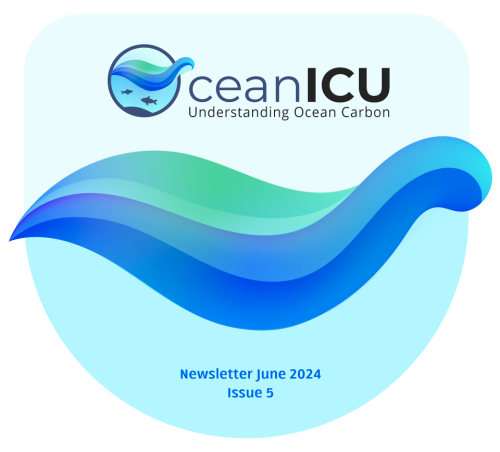
In this edition:
OceanICU is a five-year project that seeks to gain a new understanding of the biological carbon pump and its processes to provide fundamental knowledge and tools to help policy makers, regulators and Ocean industry—fishing and mining, along with the wider blue economy—manage and understand the impact of their actions on Ocean carbon. This will ultimately lead to a better approach for addressing climate change in alignment with the EU Green Deal to reduce the net emissions of greenhouse gases to Zero by 2050.
A Note from our Coordinator Richard Sanders
Hello and thank you interest in the OceanICU project.
By the time you read this, we will have delivered the first Periodic Review Report. Although these are traditionally viewed by project participants with a mixture of fear and dread, I have found preparing the report an uplifting experience. It’s been inspirational to see how, one third of the way into the project, the vision we had in the proposal writing stage is one that we are on the way to delivering and all of the work packages are firmly established with multiple new exciting results that I can see will lead to meaningful manuscripts, the basic currency of our trade. Already we have contributed to 20 papers, with many more to come.
Now that the individual components of the OceanICU research plan have been established, the next challenge is to link them together to ensure that we can robustly evaluate the importance of different biological carbon processes and produce novel exploitation scenarios linked to real world human behaviour. OceanICU’s project manager Dagmara Rusiecka and I will be focussing substantial effort on this in the fall as these strands of work will be key in supporting the ongoing development of the Decision Support Tools (DST) that are at the heart of the OceanICU vision. I was recently privileged to attend the Digital Ocean Forum in Brussels where a demonstrator of the OceanICU DST was showcased running on the newly launched EDITO platform; it is clear to see how OceanICU’s DSTs will be embedded within the Digital Twin infrastructure going forward. The main challenge we face now is to make sure that the processes work—that the DST and the scenario work proceed along a track together at the same speed, something which is easier said than done. However, those are next steps. For now, I wish you a good summer.
Richard Sanders
OceanICU Project Coordinator
NORCE
Bergen, Norway

OceanICU Meets EDITO
A first demonstrator of the highly anticipated OceanICU Decision Support Tool is now running on the newly launched EDITO platform.
You can pick any location around the world to run a suite of OceanICU models, and explore how they respond to pressures. This demonstrator integrates state-of-the-art biogeochemical models and datasets that are being developed and refined within OceanICU. In consultation with stakeholders, the models, scenarios and user experience of the DSTs will be developed further over the course of the project. Watch the demo by Jorn Bruggeman (BB) and check it out for yourself on the beta testing platform here.
The European Digital Twin Ocean is a pillar of the EU Mission Restore our Ocean and Waters, integrating flagship European data and services, EMODnet and Copernicus Marine Service in a single framework along with advanced numerical modelling, machine learning, high-performance computing, and predictive capabilities enabling effective decision-making for the management of marine spaces and resources.
OceanICU is pleased to be identified as a key collaborator of the EDITO.

WEBINAR 5: Industrial Carbon and Mining
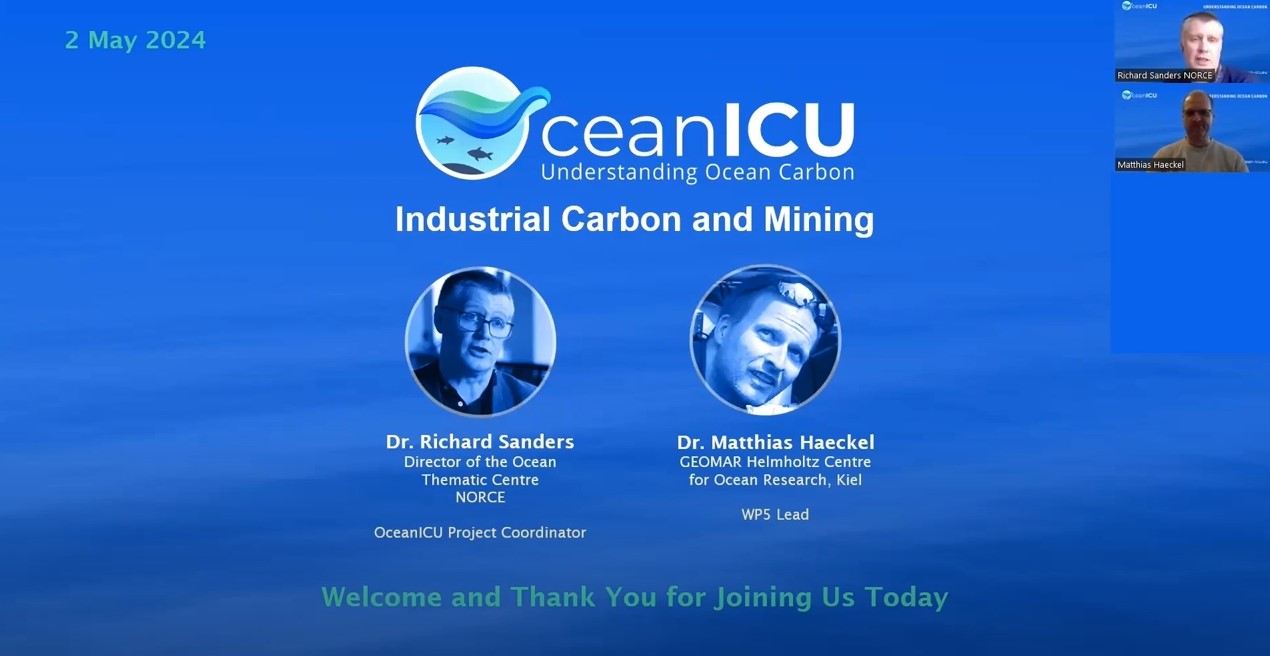
The latest event in the OceanICU webinar series featured an in depth introduction to industrial carbon and mining by Work Package 5 leader Matthias Haeckel (GEOMAR). The presentation covered our current state of knowledge on abyssal ecosystems and the expected impacts from future deep-sea mining activities. The presentation also touched upon the ongoing development of regulations for the exploitation of mineral resources in the Area by the International Seabed Authority.
There was a lively discussion with attending stakeholders, moderated by Richard Sanders (NORCE). If you missed the webinar, check out the video recording, the PowerPoint presentation and the Q&A transcript here.
WEBINAR 6: Decision Support Tools
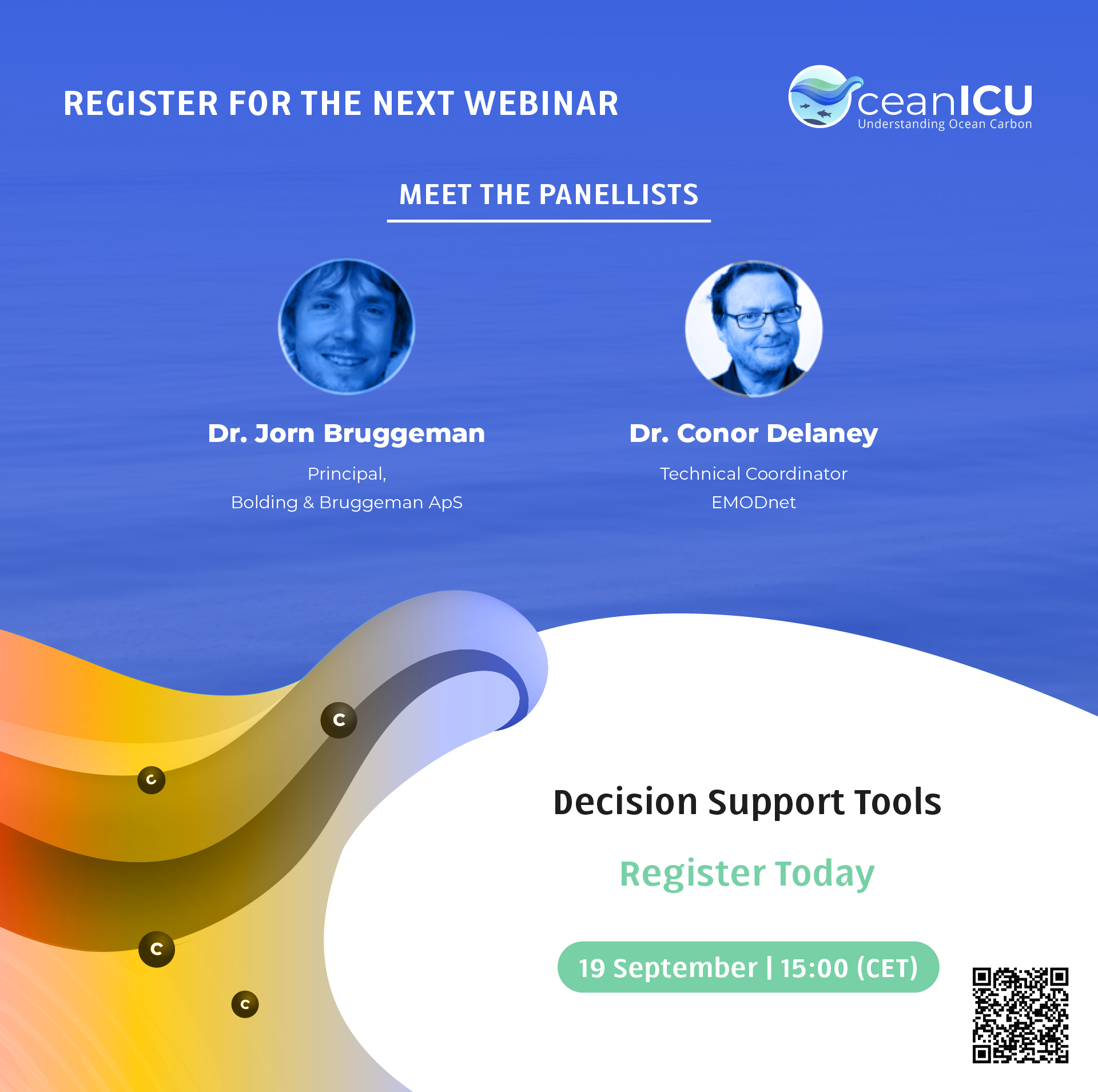
19 – September, 15:00 (CET)
The webinar series will continue in September with a Work Package 7 event focused on OceanICU’s DST development with Jorn Bruggeman (B&B) and Conor Delaney (SSBE) representing EDITO-Infra and EMODnet. Register today and stay tuned for more information.

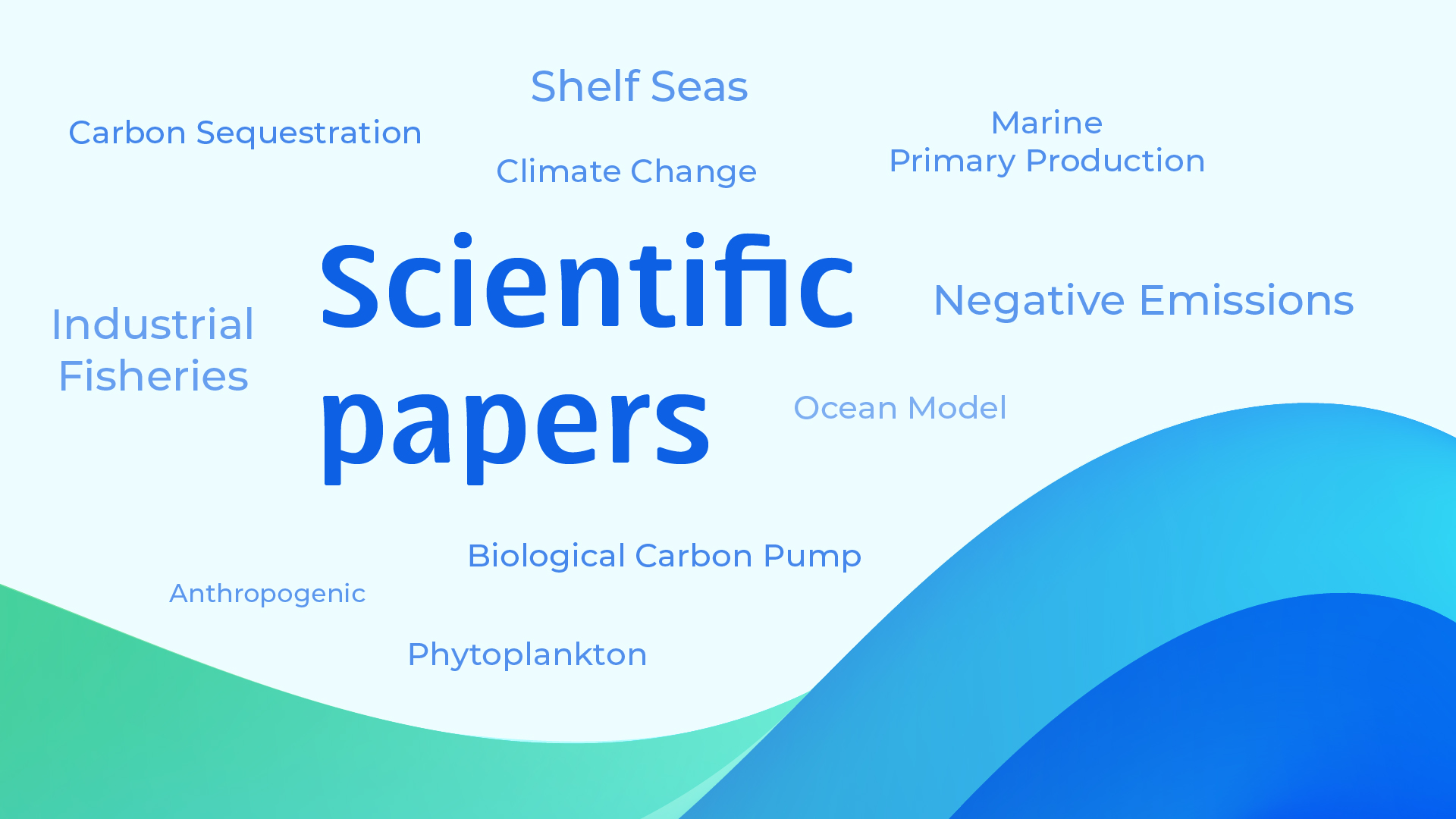
Twenty Scientific Papers
Thanks to all our OceanICU scribes, anybody looking for good summer reads will be pleased to learn that OceanICU work has been referenced across 20 scientific papers since the beginning of the project, including the following areas:
- the biological carbon pump
- the biochemistry of greenhouse gases
- machine learning and future ocean carbon dioxide fluxes
- CO2 storage
- Eddy-Resolving Simulations
- ecosystem-based management
You can find a full catalogue of these papers with links to their relevant open-source publishing platforms on the OceanICU website: find it here.

Stephane Henson Receives the Fridtjof Nansen Medal
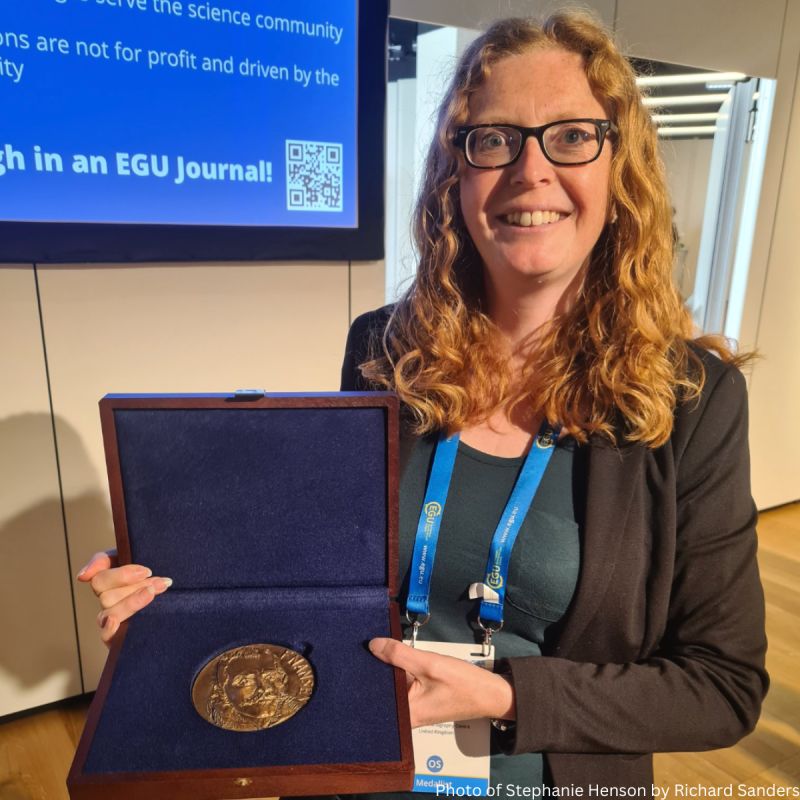
At the EGU conference, Professor Stephanie Henson (NOC) was awarded the 2024 Fridtjof Nansen Medal for her exceptional oceanography research. Through innovative integration of satellite data, global biogeochemical models, and insights from autonomous underwater vehicles, Stephanie has significantly advanced our understanding of phytoplankton blooms and their responses to climate change. Her contributions to the latest IPCC Assessment Report underscore her profound impact in shaping our knowledge of marine ecosystems and carbon dynamics. Congratulations, Stephanie Henson, on this prestigious recognition!
UNESCO State of the Ocean Report
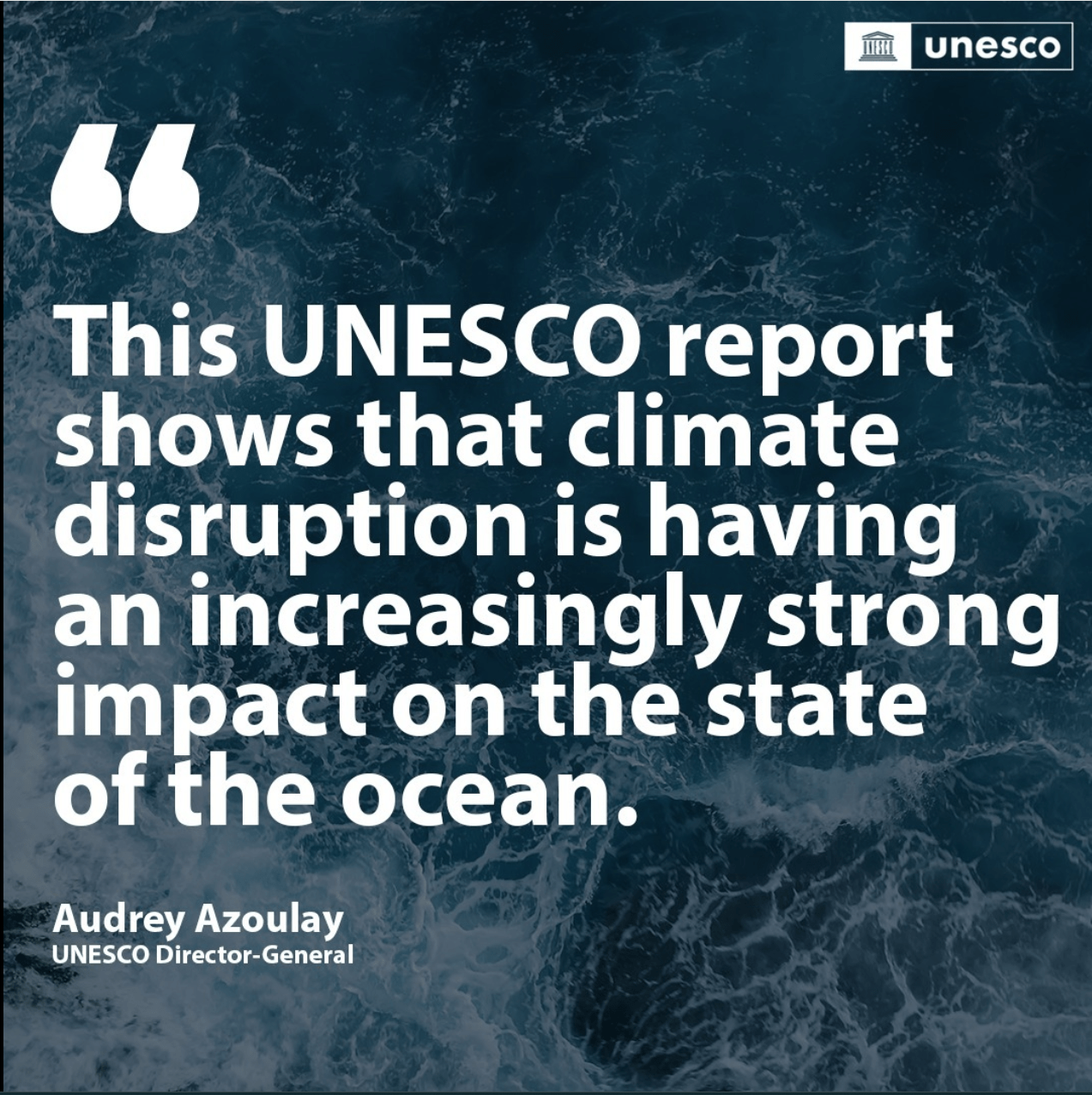
Developed through the collaboration of more than 100 authors from 28 countries, the comprehensive report was recently published providing crucial data to inform policymakers and drive actions toward better managing our ocean and climate.
OceanICU work directly links to many of the key messages listed below:
- Detecting long-term trends is required to identify drivers of change.
- Ocean observation is critical infrastructure to manage risk and meet future demands of sustainable ocean industries.
- Access to knowledge remains unequally distributed.
- Marine protected areas, coastal protection and marine spatial planning are important tools, if applied in the context of sustainability, to address ocean change.
- Collaboration between all types of knowledge holders, governments and private sector is critical to increase ocean knowledge and understanding.

Our consortium colleagues have been busy sharing the OceanICU story and project research at a variety of meetings, events and conferences around Europe.
EGU Wrap UP
OceanICU ran a session at EGU in April focused on the Biological Pump as a primary mechanism to store CO2 in the ocean. Presentations from our consortium included Neill MacKay (Exeter), Fabio Berzaghi (WMU) and Stephanie Henson (NOC), while Damien Couespel (pictured below) and Richard Sanders (NORCE) gave poster talks. There was an array of talks from outside the consortium too, covering some exciting observations, novel data syntheses and models predicting the future. The highlight for OceanICU was seeing our colleague Stephanie Henson receive a medal, which took place during the OceanICU session.
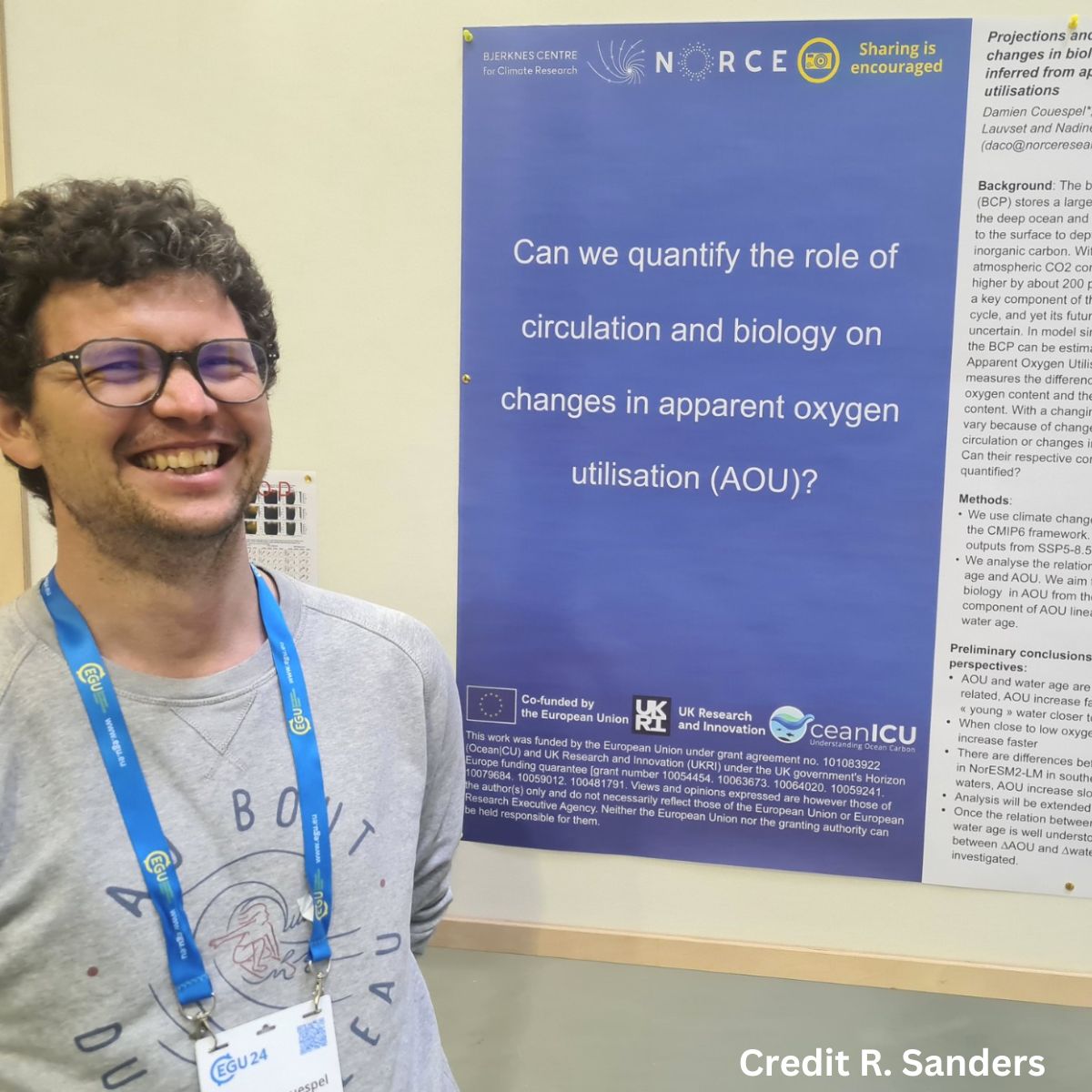
Convening sessions like this at international meetings is an important part of OceanICU’s work programme as they offer the opportunity to disseminate the project’s research and to connect and synergise with scientists around the world. The next session will take place at the 2026 Ocean Sciences meeting in Glasgow where OceanICU will have a dedicated side event, organised by a range of biological pump programmes from around the world.


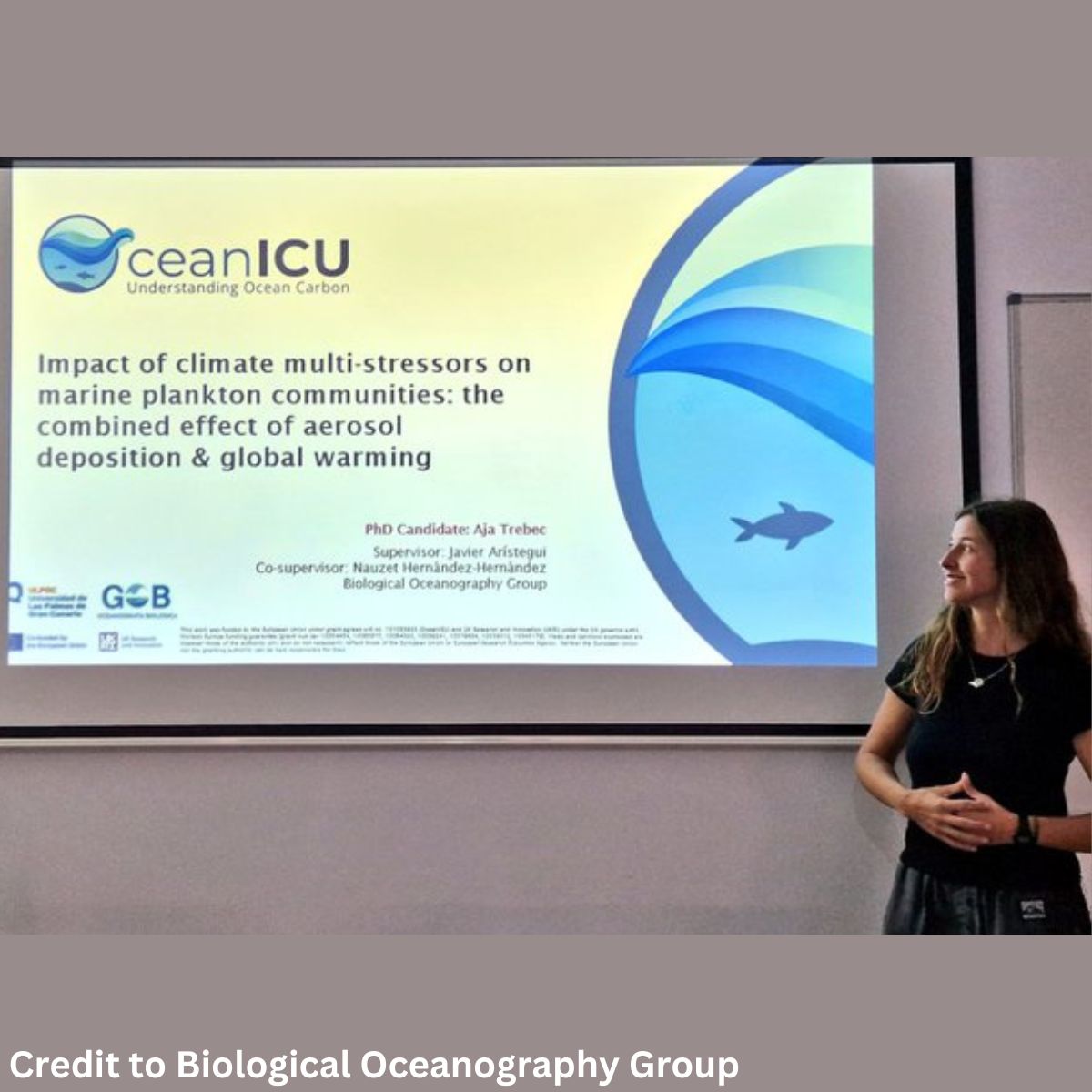
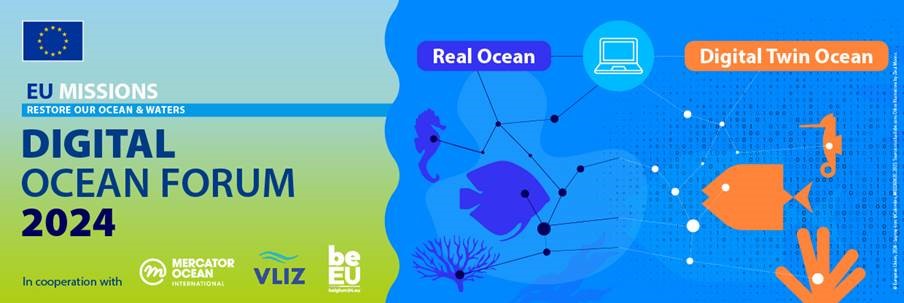
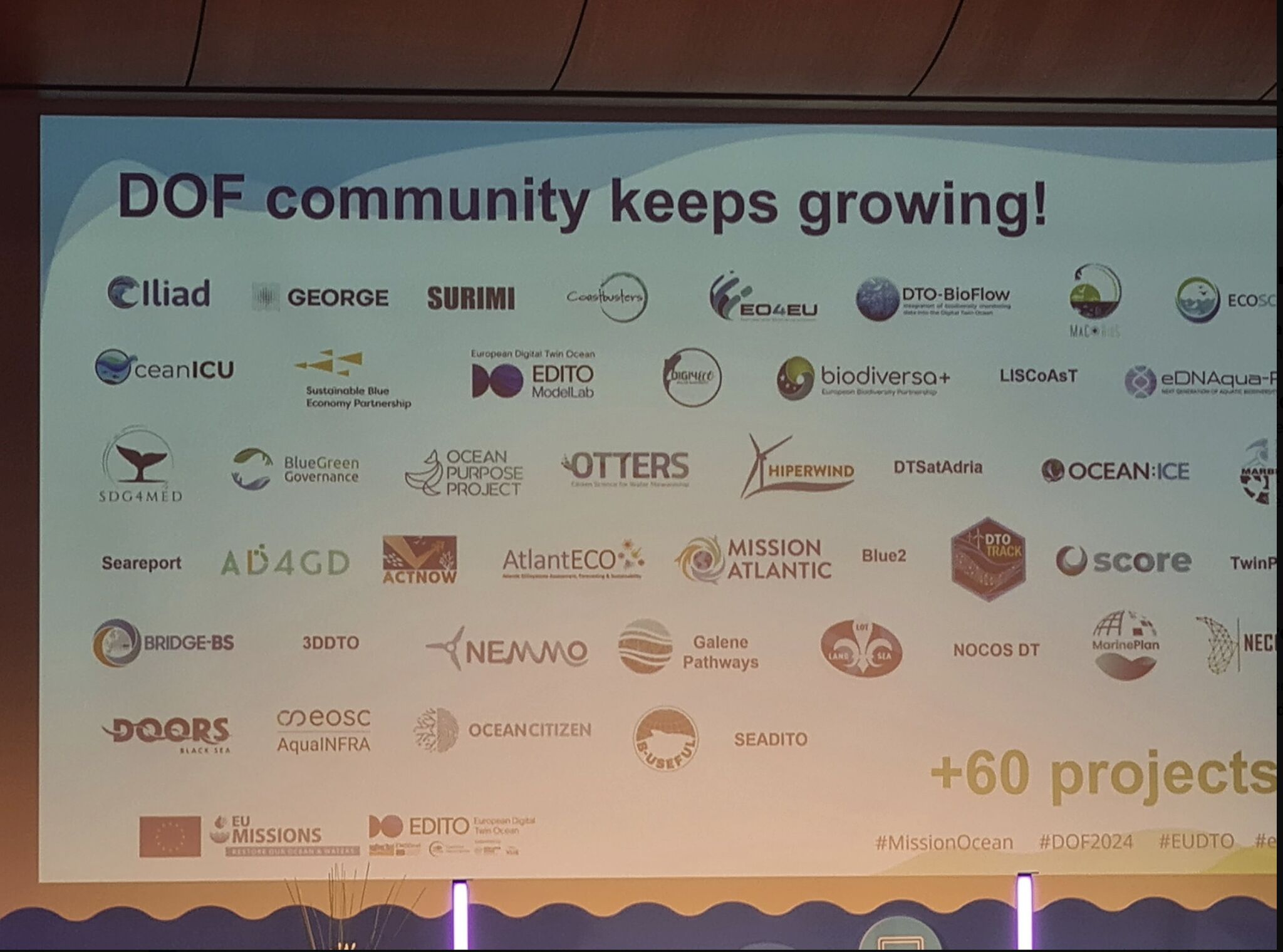
Science is Wonderful
At the Science is Wonderful event in Brussels on the 25th of April, Maria Angel (SSBE) engaged with early career scientists from across Europe to celebrate the importance of science and to discuss OceanICU’s aim to ensure educational pathways are forged to keep students and teachers abreast of new knowledge.
EcoPath 40
“Ecopath 40 years – The Ecosystem Continuum: From knowledge to decisions” took place the 3-8 June in Oostende, Belgium. This international scientific gathering brought together ecosystem modellers using the Ecopath with Ecosim (EwE) modelling framework and software. Paula Silvar (MI) presented Work Package 5 research on fish carbon dynamics in the Irish Sea while the use of EwE in OceanICU was discussed via a presentation and poster talk by Angela Martin and Jacob Bentley (Natural England) seen below with Sheila Heymans, Executive Director, European Marine Board and Villy Christensen, Professor at the University of British Columbia
DOYCAG
On the 25th of May, Aja Trebec (ULPGC) presented OceanICU research to students in the Doctorate in Oceanography and Global Change DOYCAG program at the University of Las Palmas Gran Canaria ULPGC.
GLOBE
In support of GLOBE’s Year of Climate and Carbon campaign, OceanICU’s Richard Sanders (NORCE) had the opportunity to discuss the ocean carbon cycle at a recent webinar, and to provide an overview of the work involved in OceanICU, including fish carbon, the effects of industrial processes, decision support tools and digital twins.
Digital Ocean Forum 24
OceanICU’s Jorn Bruggeman (BB) and Richard Sanders (NORCE) attended this year’s Digital Ocean Forum in Brussels 12-13 June, for the launch of the EDITO – European Digital Twin Ocean framework and to participate in the Science and Technology workshop. OceanICU was pleased to see our decision support tool prototype showcased on this innovative, game-changing platform as part of the event, and to be identified as a key collaborator of the DTO. See our article above for links to Jorn’s demo and to checkout OceanICU on EDITO.

AMEMR
8-11 July 2024
Plymouth UK
Learn more here
OceanICU Periodic Review Meeting
4- September 2024
Virtual Event
OceanICU Webinar 6: Decision Support Tools
19 – September 2024, 15:00 (CET)
Register here
OceanICU Annual Meeting
19-23 May 2025
Sopot, Poland
hosted by IOPAN
Stay updated with the latest news and information about events
Follow us on social media
And remember, if you’d like to join our mission to improve carbon understanding for a healthy and resilient Ocean and sustainable blue economy, please fill out the Stakeholder Sign-Up Sheet.
